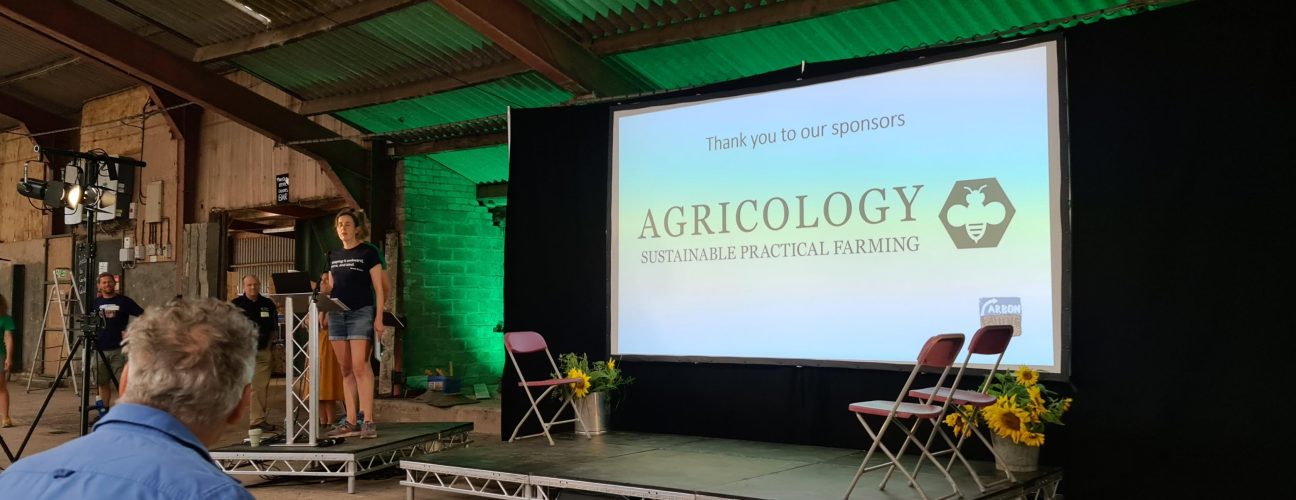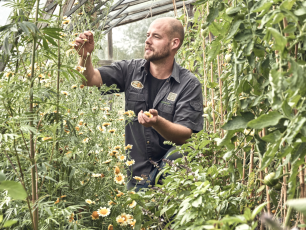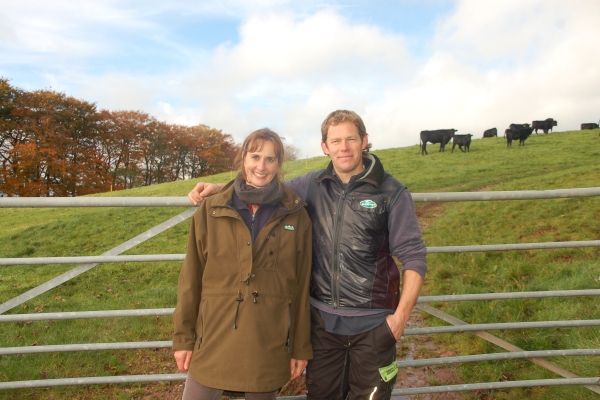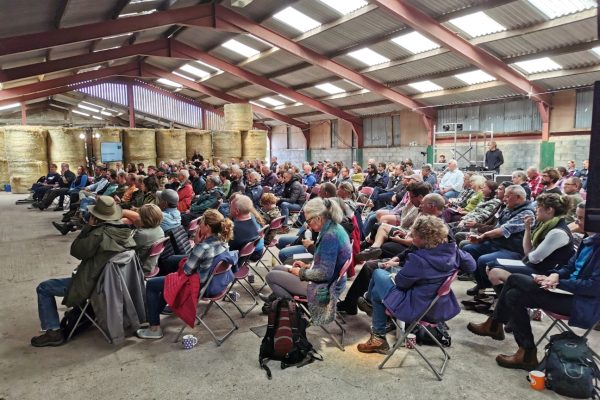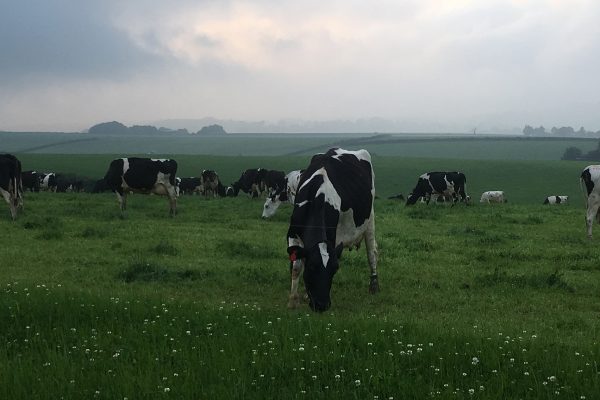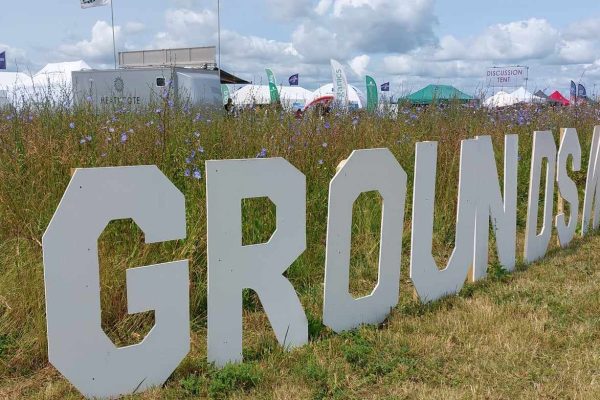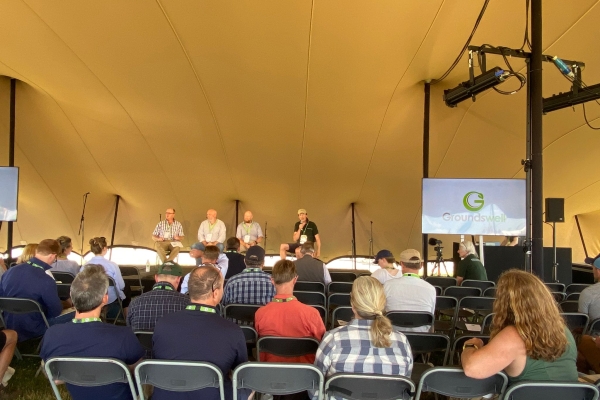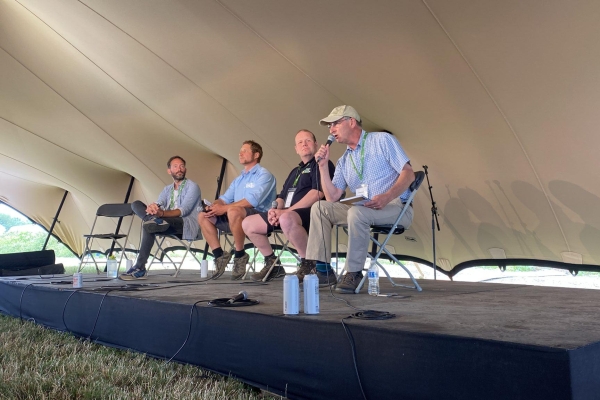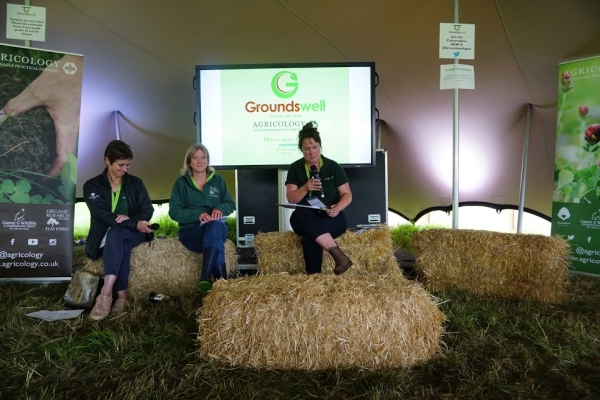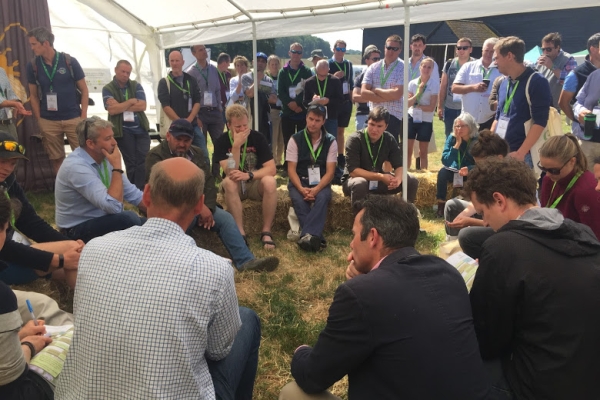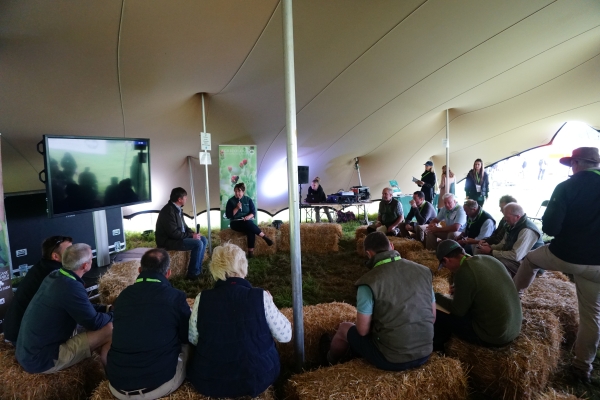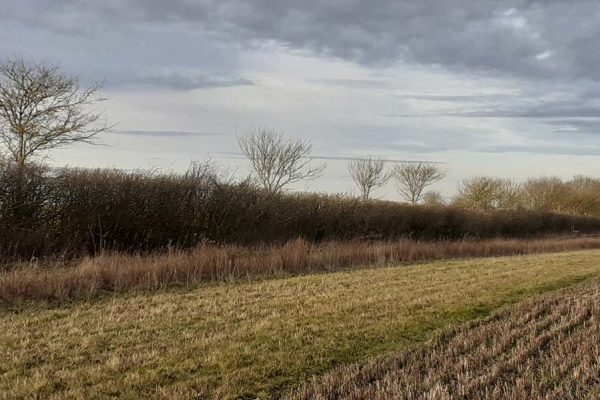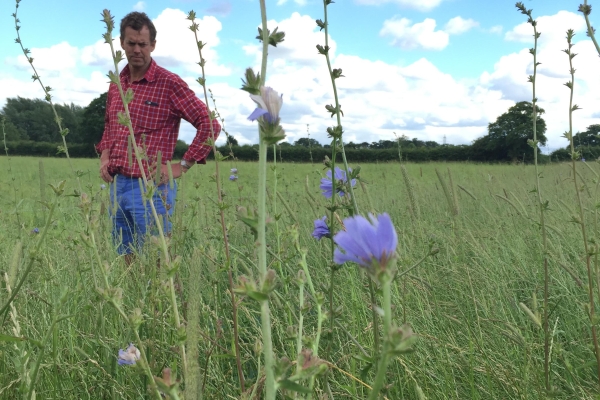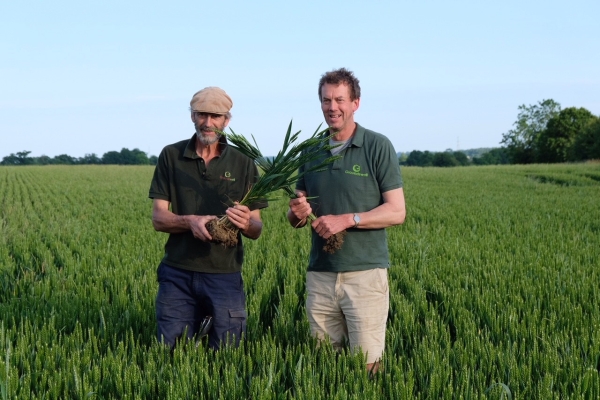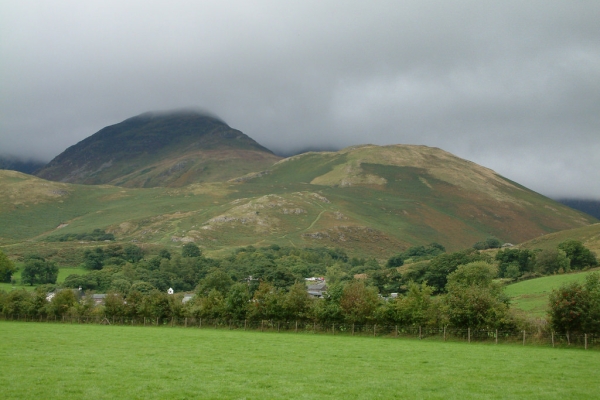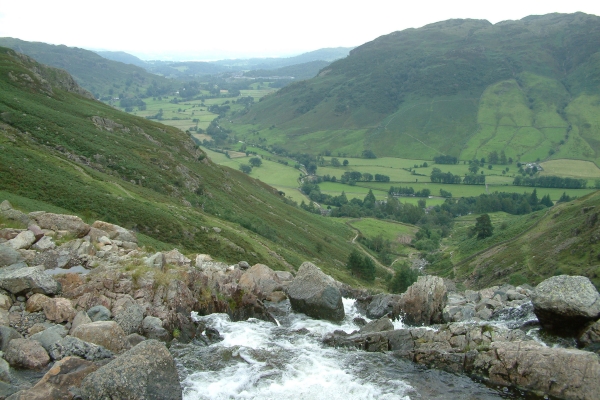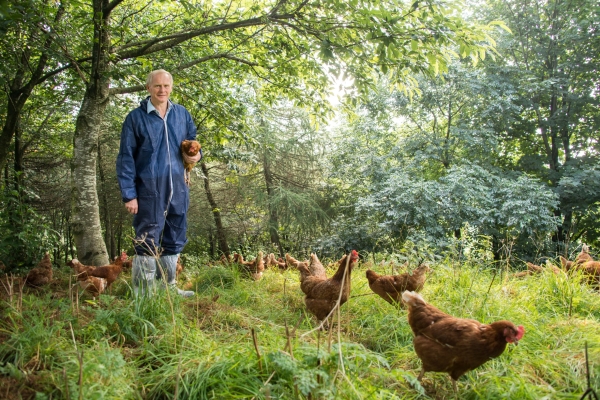Carbon Calling – Shared stories and lessons learnt
On Saturday 9th of September we were lucky enough to attend the Carbon Calling conference in Cumbria. The event, in its second year, was organised by Liz Genever, Nic Renison and host farmer Tim Nicholson, and sets out to be a Groundswellesque event, with a northern flavour that focuses on livestock.
Things got off to a light-hearted start, with lots of laughter, as Liz and Nic set the scene for what turned out to be an action packed day.
The opening session kicked of with Martin Lines introducing new entrant farmers Sarah Langford and Matt Swarbrick, who shared their stories around exploring alternative approaches to farming, questioning how ‘best’ to farm, and explaining creative ways in which they run their farming operations. Sarah, who is a Sunday Times’ best-selling author, also took the opportunity to read a beautiful poem that was created using her grandfather’s farming diary. The recording of this session can be found here.
The headline speaker of this years Carbon Calling Jaime Elizondo was next on stage, he gave an interesting talk that discussed the role glomalin plays in soil health and how to increase fungal/bacterial ratios, and gave an overview of his somewhat controversial ‘total grazing’ approach. His talk sparked some interesting discussion within the room and several members of the audience posed probing questions as they dived into the theory behind his approach to grazing. You can find the recording of this session here.
After a fantastic lunch, my favourite session of the event took place. Brilliantly chaired by Michael Blanche, the panel consisted of Amy Hughes, Nikki Yoxall, Claire Whittle and Sarah Langford, who took to the stage and spoke about how to embrace change. In what was an emotional, inspiring, and energising session, topics ranged from how change can impact people’s identity, to balancing crises and peer pressure as drivers of change. The tone and content of this session mimicked nothing I have seen at any farming conference or event of this nature before, it was a session that meandered through the topics, was funny, exceptionally open, and explorative. Not only is it rare to have an all female panel in these types of spaces, but it is rare to see such honesty on stage. It was fantastically curated, delivered by knowledgeable and open speakers, and the type of session that needs to be seen more across events in the farming space. The recording of this session is now available here.
Recently crowned ‘Soil Farmer of the Year’, Stuart Johnson gave a great overview of the regenerative approaches he is introducing on his farm and spoke about the journey he has been through to reduce inputs, approach issues on-farm differently, and keep the business profitable. Dairy farmer and Nuffield Scholar Bruce Thompson gave a fascinating and lively talk about dung beetles, full of practical advice and some brilliant facts. You can catch up on this session here.
A trio of talks closed the day, with Mark, Jane and Will of Broom House Farm discussing their farming operations in Durham and explaining how they have diversified with several different ventures over the years, Sally and Andrew Hattan giving the audience a run-down on how they manage their farm near Nidderdale in Yorkshire and make Stonebeck Raw Wensleydale Cheese, and Sara Grady of British Pasture Leather rounding things off with an overview of how British Pasture Leather are creating regeneratively produced leather. The final session of the day can be watched here
It really was an inspiring day, full of energy, new connections, and practical advice. There are rumours circulating that there will be another Carbon Calling in 2024, we certainly hope there will be and are already looking forward to it.
